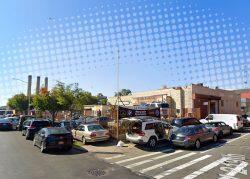The pandemic has all but ceased to be an excuse for retailers to skip rent.
Collections from national tenants last year were at 94 percent, on par with 2019’s 96 percent, according to a report by Datex Property Solutions. Collections from non-national tenants were 85 percent, down three points from 2019.
The chain stores in Datex’s survey all lease 10 or more locations or have a minimum gross monthly rent of $250,000. The report does not account for any rent relief from landlords.
Despite the high overall rate of collection, some tenants were exceptions.
Cinepolis, for example, made just 25 percent of rent payments last year and Regal Cinemas just 54 percent. Movie theaters on the whole paid just 66 percent of what they owed compared to nearly 100 percent in 2019. The missed payments reflect a second brutal year for movie houses, which saw attendance plunge as in-home streaming soared.
Read more


Cinemas also saw gross rent as a portion of sales skyrocket from 16 percent in 2019 to 49 percent in 2021, as sales per square foot nose-dived from $144 to $55.
“Sales is like oxygen. The more sales I have, the more opportunity I have to breathe, but ultimately I have costs that eat away at those sales,” Datex Property Solutions CEO Mark Sigal said.
Fitness centers also had a down year as customers turned to at-home or outdoor workouts to avoid Covid and mask policies. Boca Raton-based chain Orangetheory Fitness made 73 percent of payments while LA Fitness paid 87 percent. Overall, fitness providers were at 85 percent, compared to 94 percent in a normal year.
Though department stores managed to pay their rent — with the category at 96 percent — their occupancy costs rose from 3 percent of sales in 2019 to 8 percent last year. Again, that was not because rent went up but because sales per square foot plunged, from $281 to $183.
Others withheld rent for no obvious reason, including Victoria’s Secret, which made just 74 percent of its payments, and Sephora, which made 84 percent of them.
As 2021 progressed, some retailers improved on payments as sales improved. In the first quarter, hair salons saw sales per square foot fall from $265 to $196. However, by the fourth quarter, sales per square foot were up $10 to $271. As a result, collections went from 79 percent in the first quarter to 97 percent in the fourth.
Some retailer categories had a great 2021, even beating out 2019’s numbers. Home goods, for example, saw occupancy costs drop from 9 percent of sales to 7 percent as sales per square foot jumped from $245 to $491. Sporting goods and supermarkets similarly saw improvement.
Forty-seven percent of new leases last year included rent hikes, with those rents rising by an average of 17 percent above 2019 levels. Another 28 percent saw decreases in rent, averaging 15 percent. Renewal rates were up compared with before the pandemic, with 64 percent of those who could renew doing so, up from 59 percent in 2019.
